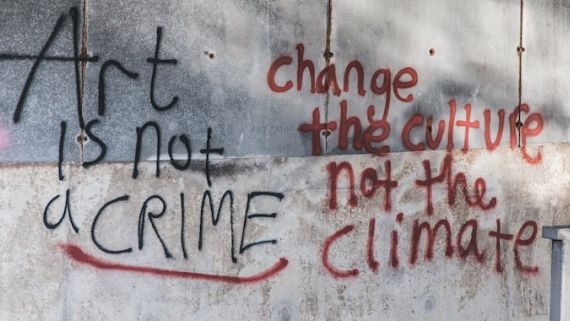
Please note: This event took place in April 2021
When it comes to the climate crisis, we often hear that action should be led by science. But what about the arts? For this talk are joined by Watershed's Environmental Emergencies Action Researcher Zoe Rasbash.
A just transition is a term developed by trade unionists and environmental justice campaigners as a way to describe the transformation to a green and equal society, leaving no one behind. Popular with policymakers, it’s lauded as a key tool for building a fair, climate-neutral economy. While this will require scientific and economic innovation, we must acknowledge environmental challenges are, in fact, often cultural at their root.
A true societal transformation needs a shift in the values and norms which underpin how we live. Arts and culture are uniquely placed to kickstart this, but to do so, those working at the intersection of culture and climate need to get serious. Beyond ‘raising awareness of climate change’, we need a bottom-up cultural strategy which centres inclusion and emotion at the heart of climate work.
In this talk, Zoe will demystify the role of arts and culture in a just transition by exploring the fundamentals of what that strategy could look like. She will trace the history of a just transition, a term rooted in solidarity, and explain how the arts are as important as science in this transformational process.
Zoe is climate justice organiser, writer and currently, a researcher at Watershed, working to co-develop a framework for climate action for the creative sector in the South West.
